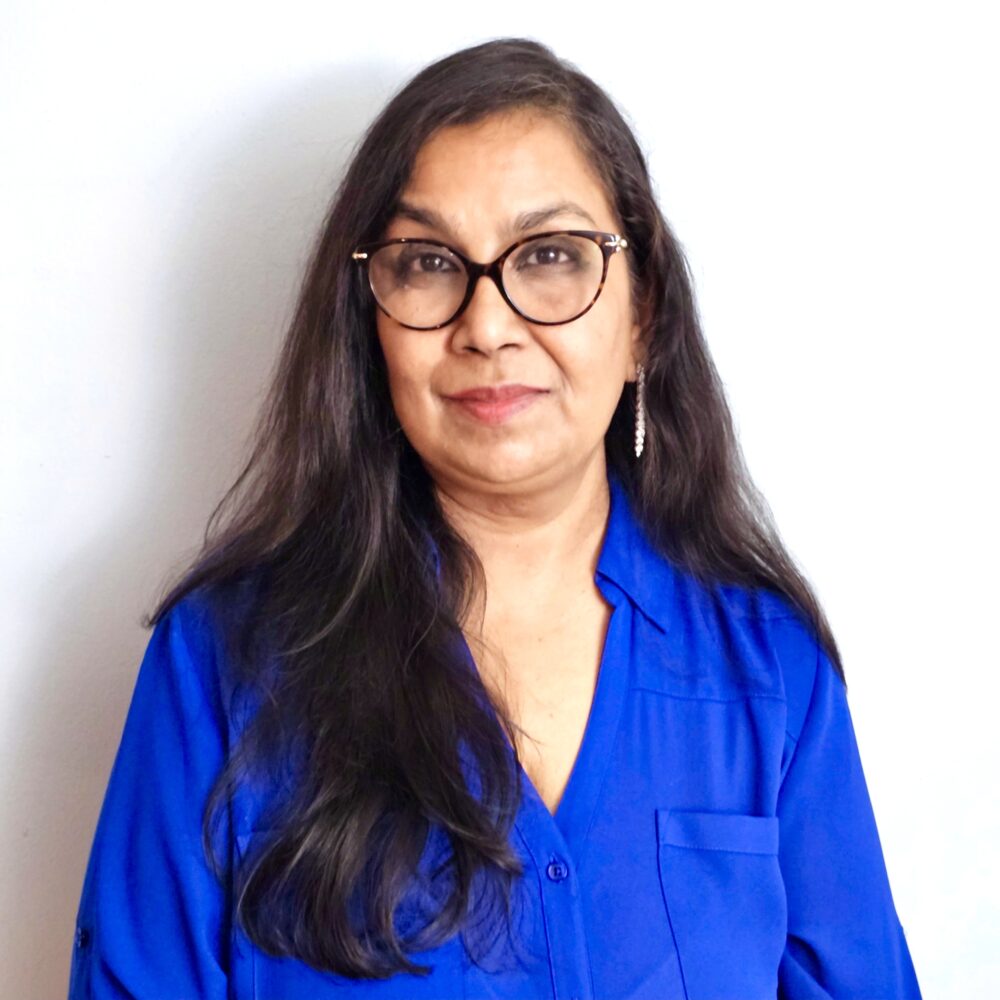
Jyoti Jaiswal wanted a way to both revive and preserve India’s dwindling heritage craft culture. In 2007, she founded OMSutra, which sells handmade, eco-friendly crafts and apparel designed by Jaiswal and made by female artisans in the South Asian nation. What started as a small e-commerce shop has grown into a line carried across the U.S. by retailers like Walmart, Wayfair and Amazon Marketplace. It’s a triumph – especially after all that Jaiswal has been through. Fourteen years into her entrepreneurial journey, she was diagnosed with breast cancer, and was forced to adjust operations to prioritize her health. But ultimately, those changes fostered OMSutra’s success, and today, the New York City-based entrepreneur and her business are both thriving.
Here’s our lightly edited Q&A, from The Story Exchange 1,000+ Stories Project.
Tell us more about why you started your business.
Our mission is to uplift struggling artisans and empower women from underrepresented communities by providing them with skills training and work opportunities. We mindfully design unique, high-quality, eco-friendly products that are handmade by artisans, while prioritizing a principle of “people and planet over profit.”
How is your business different from others in your industry?
Our commitment to preserving ancient Indian craft traditions. While some companies prioritize profits, we focus on the welfare and financial independence of the female artisans we work with.
Tell us about your biggest success so far.
We recently received certification as a Minority and Women-Owned Business Enterprise from the government agencies of New York State and New York City. Also, our partnerships with major retailers have been successful. Both of these wins enable us to reach a wider audience.
What is your top challenge and how have you addressed it?
In 2021, I went through my breast cancer journey. I had to quickly learn how to balance my health with my business’ demands. I adapted our model for flexibility, introducing remote work and digital management tools. My team took on more responsibilities, which fostered autonomy. We streamlined our core offerings, reduced complexity, and built a strong support network for business continuity. These steps not only balanced my personal and professional life, but also strengthened OMSutra’s resilience.
Have you experienced any significant personal situations that have affected your business decisions?
As mentioned, when I received my diagnosis, it became essential to modify OMSutra’s operations and offerings. These changes were crucial in ensuring gradual-yet-steady growth for the company, while continuing to effectively serve our customers and sustain relationships with stakeholders.
What is your biggest tip for other startup entrepreneurs?
Embrace continuous learning and adaptability. Build a strong network and team. Seek feedback – and then adapt. Build a strong support system. Understand your finances. Practice self-care and resilience. And most importantly: Remember that the journey of entrepreneurship is a learning process, so embrace the lessons in each success and setback.
How do you find inspiration on your darkest days?
I reconnect with my core mission and values, engage with my community, read stories of other entrepreneurs’s journeys, take breaks, practice mindfulness, talk to mentors, reflect on past successes, set small goals, and stay physically active.
Who is your most important role model?
My parents – they taught me never to give up and strive to thrive. ◼
Instagram: @OMSutra
Facebook: @OMSutra
Check out our Advice + Tips for entrepreneurs starting-up
Watch our latest videos
Subscribe to our podcast




